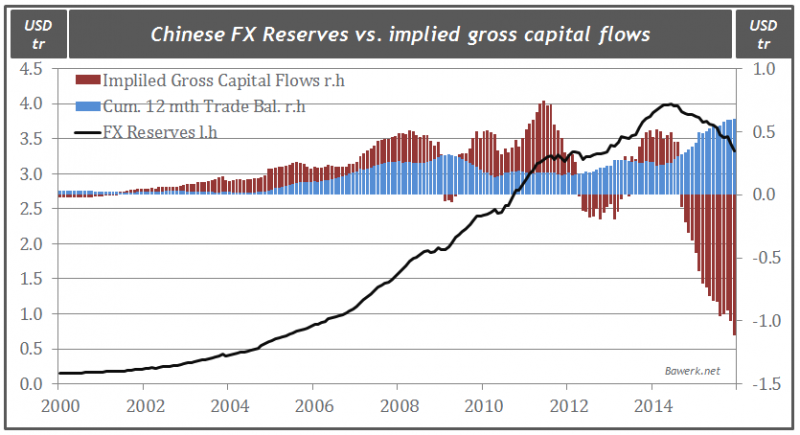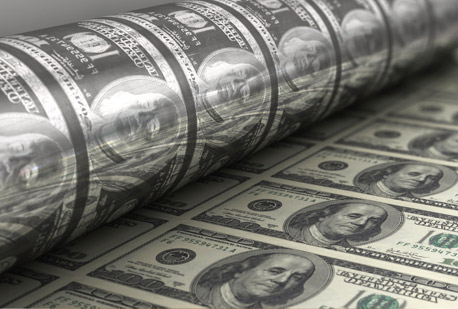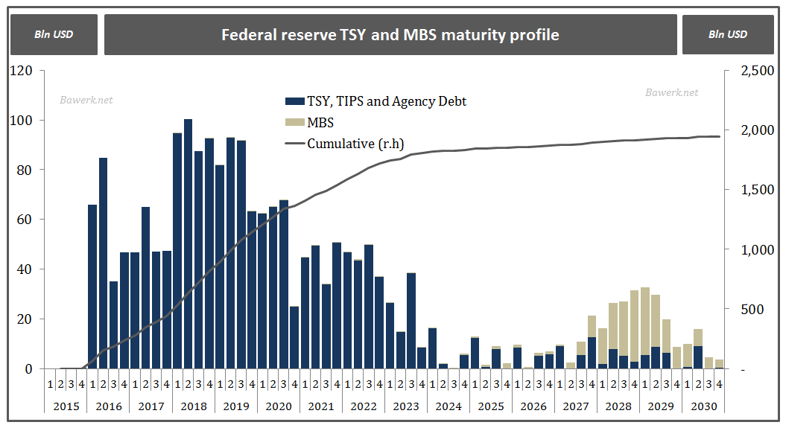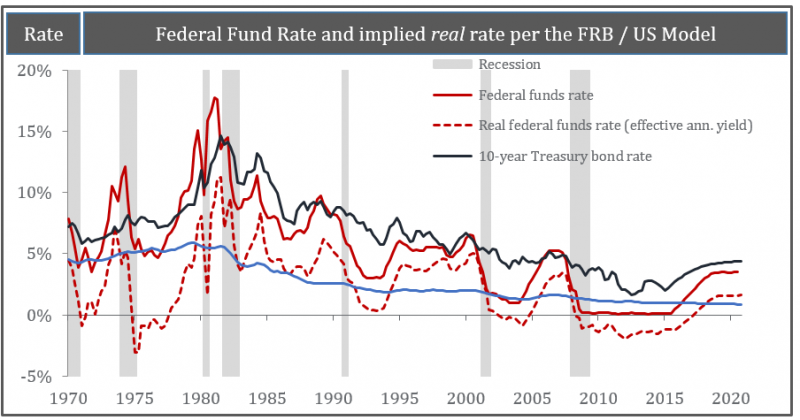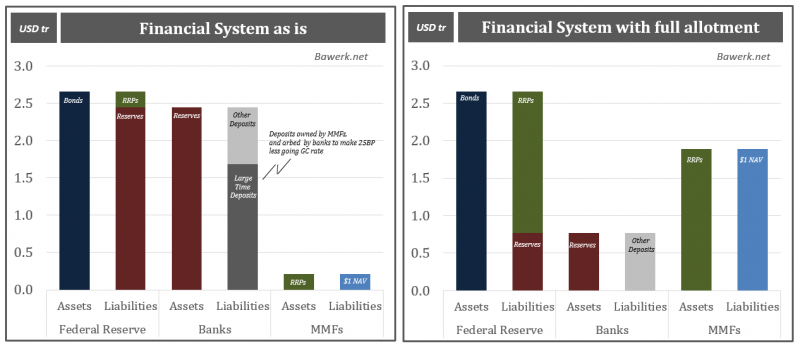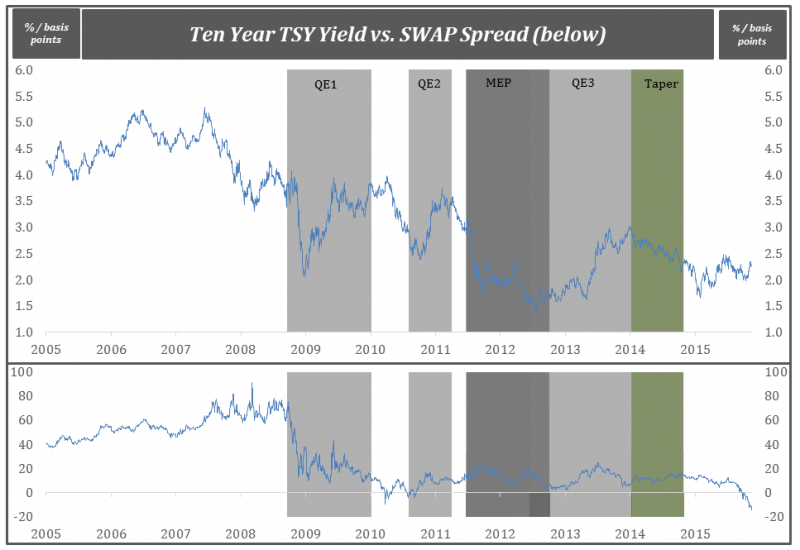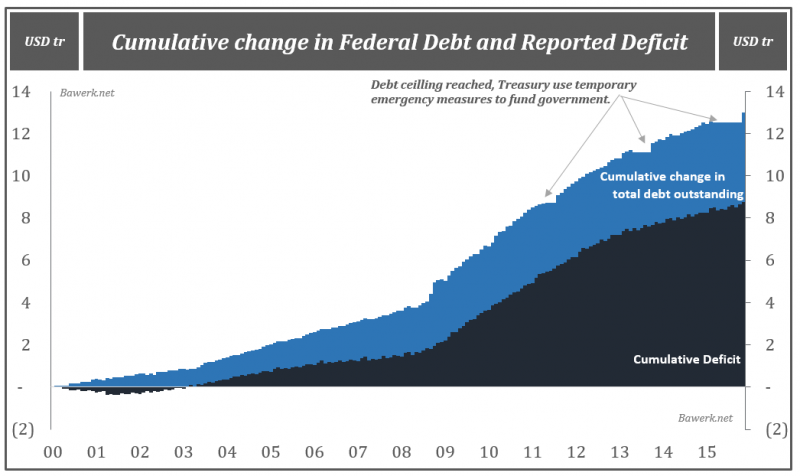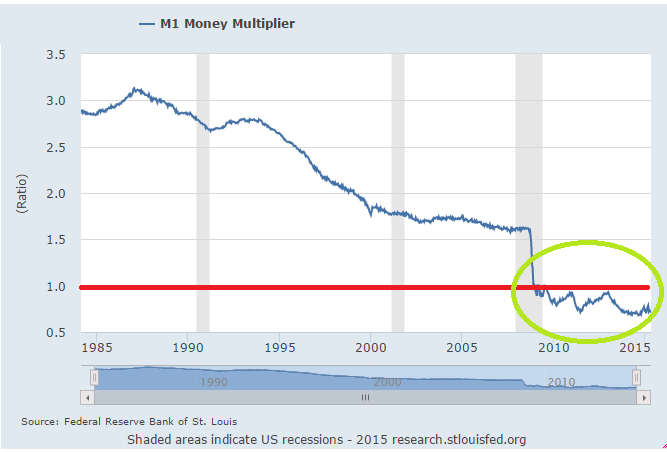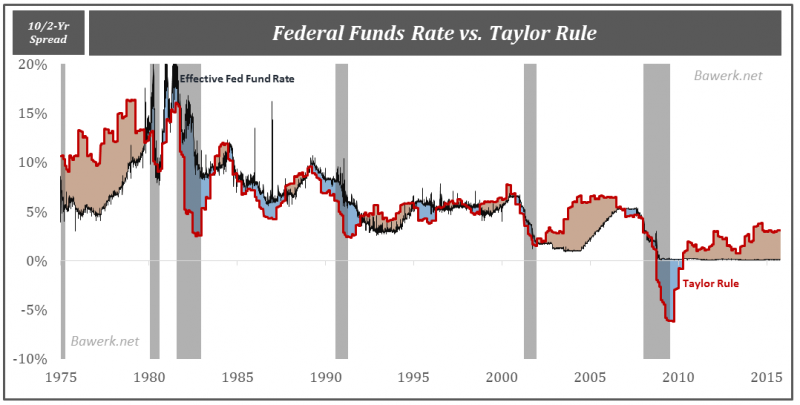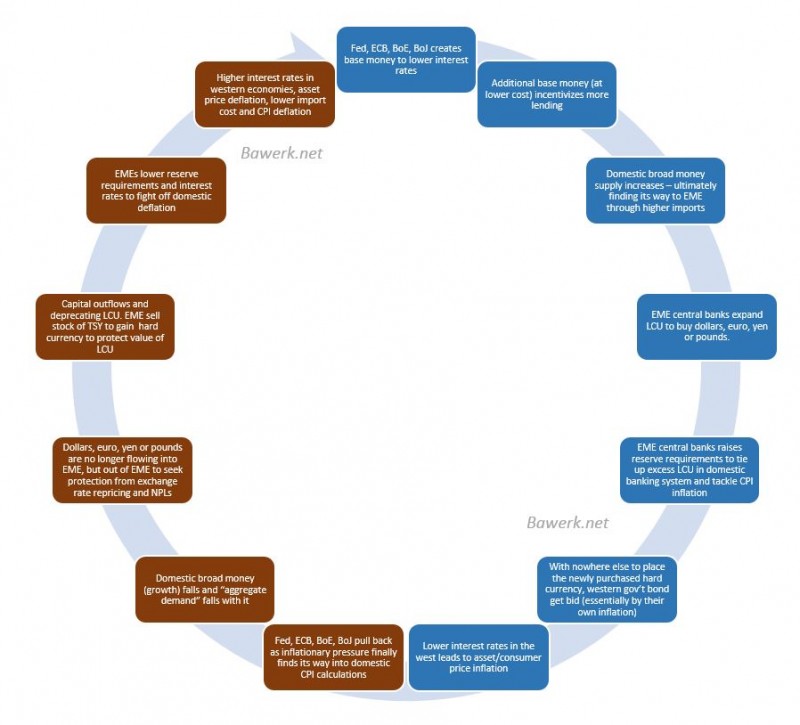Category Archive: 6b) Austrian Economics

6b.) P: Mises.org 2016-02-08 20:33:09
Tu ne cede malis, sed contra audentior ito
Website powered by Mises Institute donors
Mises Institute is a tax-exempt 501(c)(3) nonprofit organization. Contributions are tax-deductible to the full extent the law allows. Tax ID# 52-1263436
Read More »
Read More »
China’s 3 trillion dollar mistake
When looking at the current state of the Chinese economy it is important to note what happened leading up the ongoing predicament. By managing the USD/CNY exchange rate the Chinese factory worker was essentially funding excess consumption in the Unit...
Read More »
Read More »
The Bull Market in Stocks May Be Done
The great stock bull market is, perhaps, done. To most people, a bull market is good, and its end is bad. After all, a rising market signifies a healthy economy. Investors are making money. Share prices are connected to business productivity, aren’t they?
Read More »
Read More »
Open Letter to the Banks
On Friday, I attended a digital money summit at the Consumer Electronics Show. I am writing to you to warn you about the disruption that is about to occur in banking. There are many startups (and larger companies too) that are gunning for you. Perhaps you have watched what Uber has done to the taxi business? Well, these guys are planning the same thing for the banking business.
Read More »
Read More »
What Is Money Printing?
There is a populist idea of money printing. The idea is that banks can just print what they want, enriching themselves in a massive fraud. But, does it really work this way?
Read More »
Read More »
Janet Yellen Fights the Tide of Falling Interest
The Fed is going to have to take back this interest rate hike (Dec 16). The process that sets the interest rate is complex. I have written many words on its terminal decline. However, there are two simple reasons why the trend remains downward.
Read More »
Read More »
What the Fed Did NOT do
We will not spend much time discussing what the FOMC did as tons of ink have been spilled on that already. We will rather spend more time on what the FOMC did not do. A short recap will suffice; the FOMC did raise the interest rate band by 25 basis p...
Read More »
Read More »
Falling Interest Causes Falling Profits
Most people assume that prices move as a result of changes in the money supply. Instead, let’s look at the effect of falling interest. To start, consider a hamburger restaurant. Suppose that the average profit in the burger business is ten percent of invested capital. If MacDowell’s is thinking about expanding, it has to consider the interest rate. Why?
Read More »
Read More »
How Peak Debt Constrain the Fed from Moving Rates Higher
We have argued for a long time that 2016 will probably be a year of recession in the US and the Federal Reserve’s intent on raising rates will only help expedite it. We believe the current rate cycle will be short lived as the Federal Reserve is cons...
Read More »
Read More »
A Free Market in Interest Rates
Unless you’re living under a rock, you know that we have an administered interest rate. This means that the bureaucrats at the Federal Reserve decide what’s good for the little people. Then they impose it on us.
In trying to return to freedom, many people wonder why couldn’t we let the market set the interest rate. After all, we don’t have a Corn Control Agency or a Lumber Board (pun intended). So why do we have a Federal Open Market Committee?...
Read More »
Read More »
Unintended consequences of lift-off in a world of excess reserves
Bar a disastrous NFP print this coming Friday the US Federal Reserve will change the target range for the Federal Reserve (Fed) Bank’s Funds rate from the current level of zero – 25bp to 25 – 50bp on December 16th. The Fed will effectively raise the...
Read More »
Read More »
What a Negative SWAP Spread Really Means
SWAP spreads recently took a nosedive and are once again trading at negative levels, even for shorter maturities. As can be seen from the chart below, treasury yields, here represented by the 10 year maturity, rose during QE policies programs contrad...
Read More »
Read More »
Will a GDP Futures Market Be Liquid?
At the Cato Monetary Conference, Scott Sumner said he had a “modest” proposal, that there should be a highly liquid futures market in Nominal Gross Domestic Product (NGDP). Sumner is known for his view that the Fed should target NGDP as the basis for monetary policy. So a GDP futures market that predicts it would be convenient. Let’s look at his idea more closely.
Read More »
Read More »
How the Fed gave away its independence – Interest Rate Sensitivity at ZLB
In fiscal year 2014, which ended September 30 2014, the Federal government of the United States reported a cumulative deficit of US$484 billion, while the total debt outstanding increased by more than a trillion dollars. For fiscal year 2015, the dif...
Read More »
Read More »
How Do People Destroy Capital?
The flip side of falling interest rates is the rising price of bonds. Bonds are in an endless, ferocious bull market. Why do I call it ferocious? Perhaps voracious is a better word, as it is gobbling up capital like the Cookie Monster jamming tollhouses into his maw. There are several mechanisms by which this occurs.
Read More »
Read More »
The Credit Multiplier – Revisited
In last week’s article, we explained how the yield curve could cause GDP to contract in The Yield Curve and GDP – a causal relationship. Some of our readers suggested the analysis was wrong on back of an outdated view of modern money creation. The cr...
Read More »
Read More »
The Yield Curve and GDP – a causal relationship?
One of the most reliable indicators of an imminent recession through recent history has been the yield curve. Whenever longer dated rates falls below shorter dated ones, a recession is not far off. Some would even say that yield curve inversion, or backwardation, help cause the economic contraction.
Read More »
Read More »
What’s Different about Monetary Policy?
Keith Weiner argues that the money that many money managers make does not come from producing anything of value. It’s other people’s life savings that they are driving and eating.
Read More »
Read More »
The Great Unwind
Over the decade long commodity boom made in China we have all been accustomed to the large and growing current account surpluses being recycled back into western financial security markets. Case in point, from 2000 to its peak in the fall of 2013 the...
Read More »
Read More »










